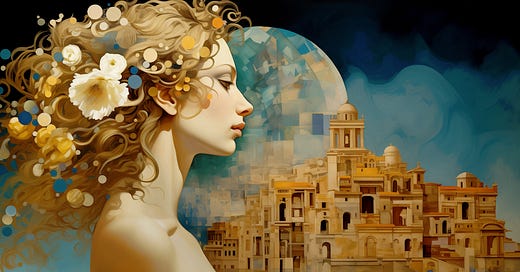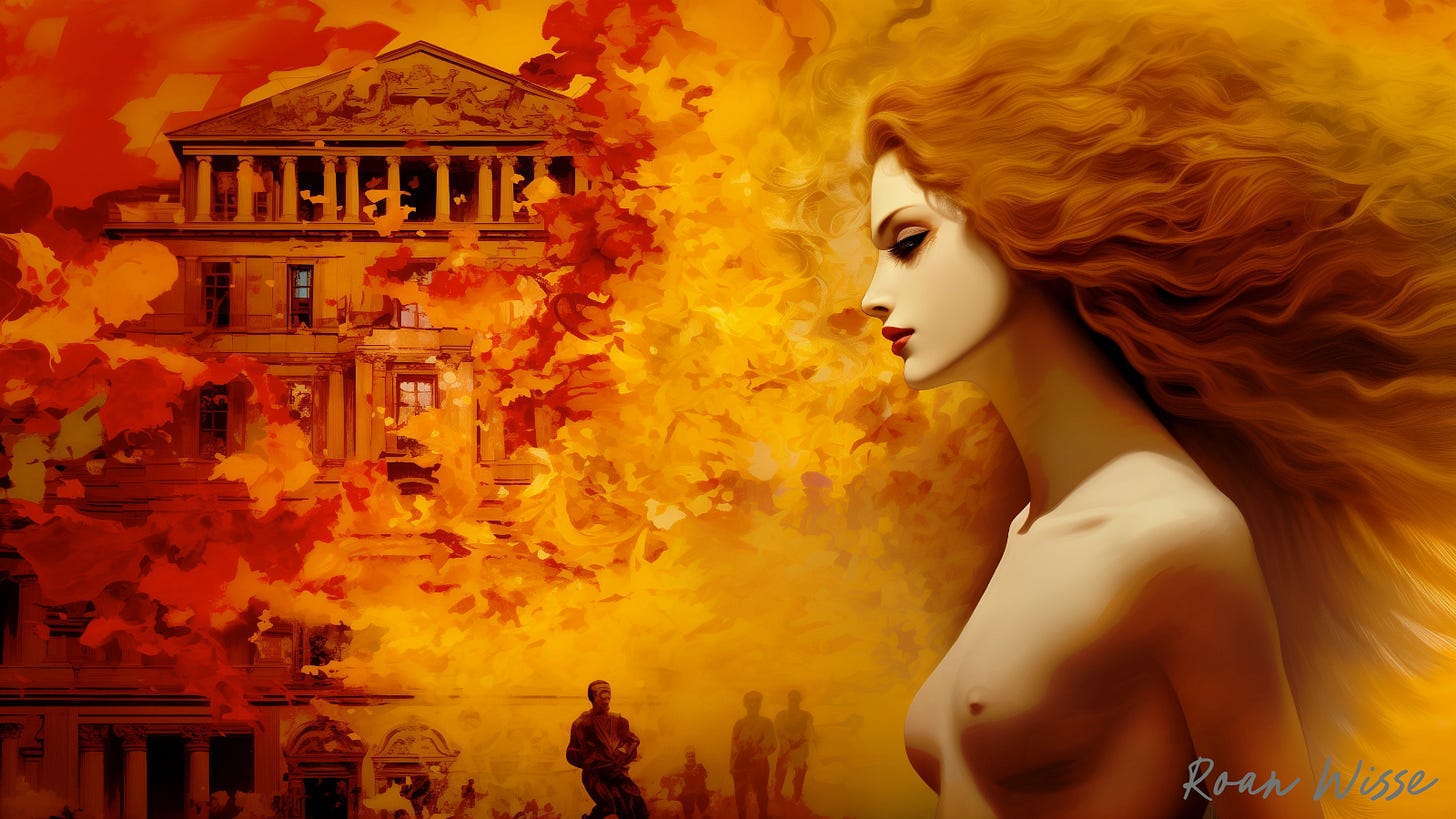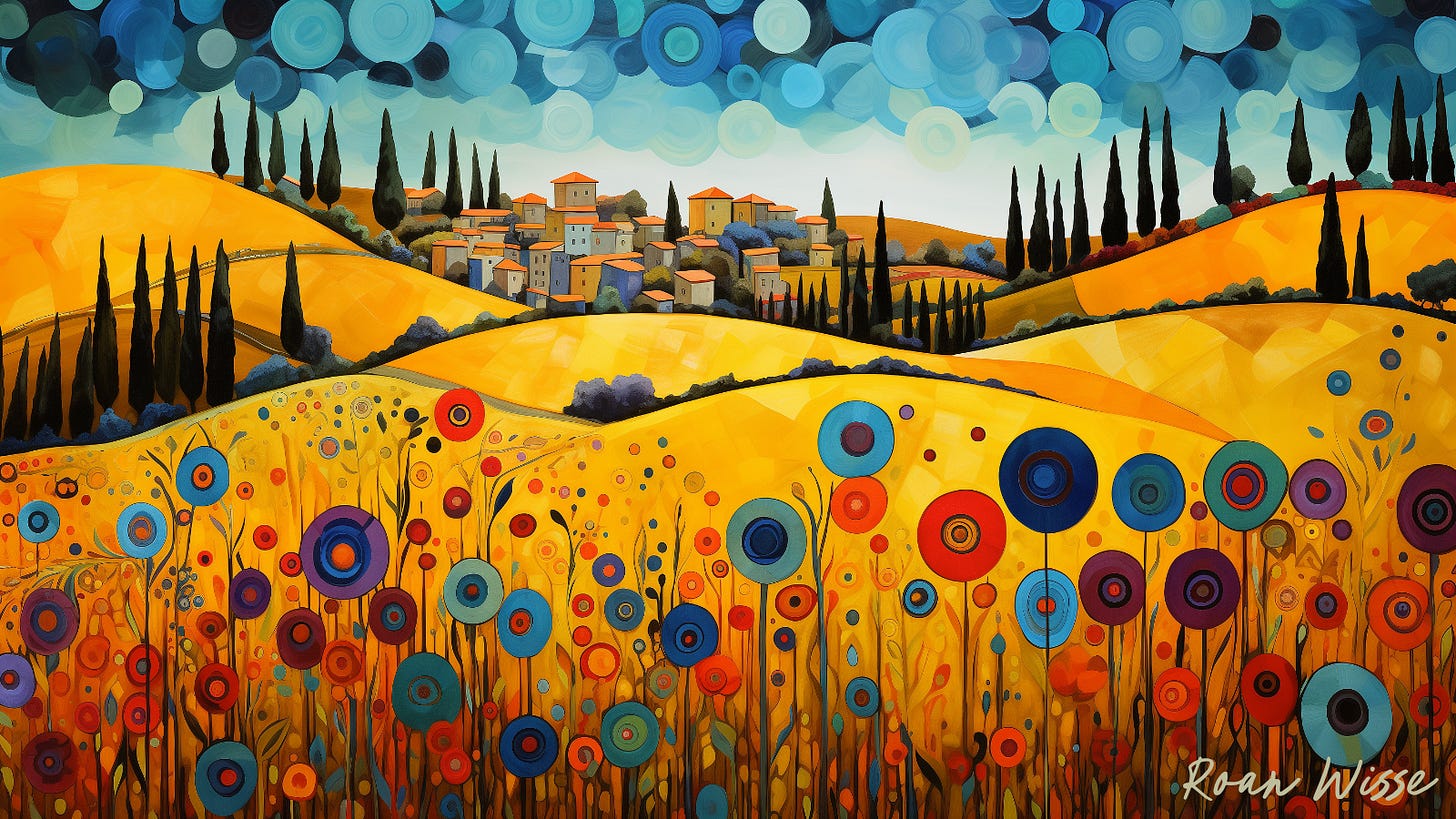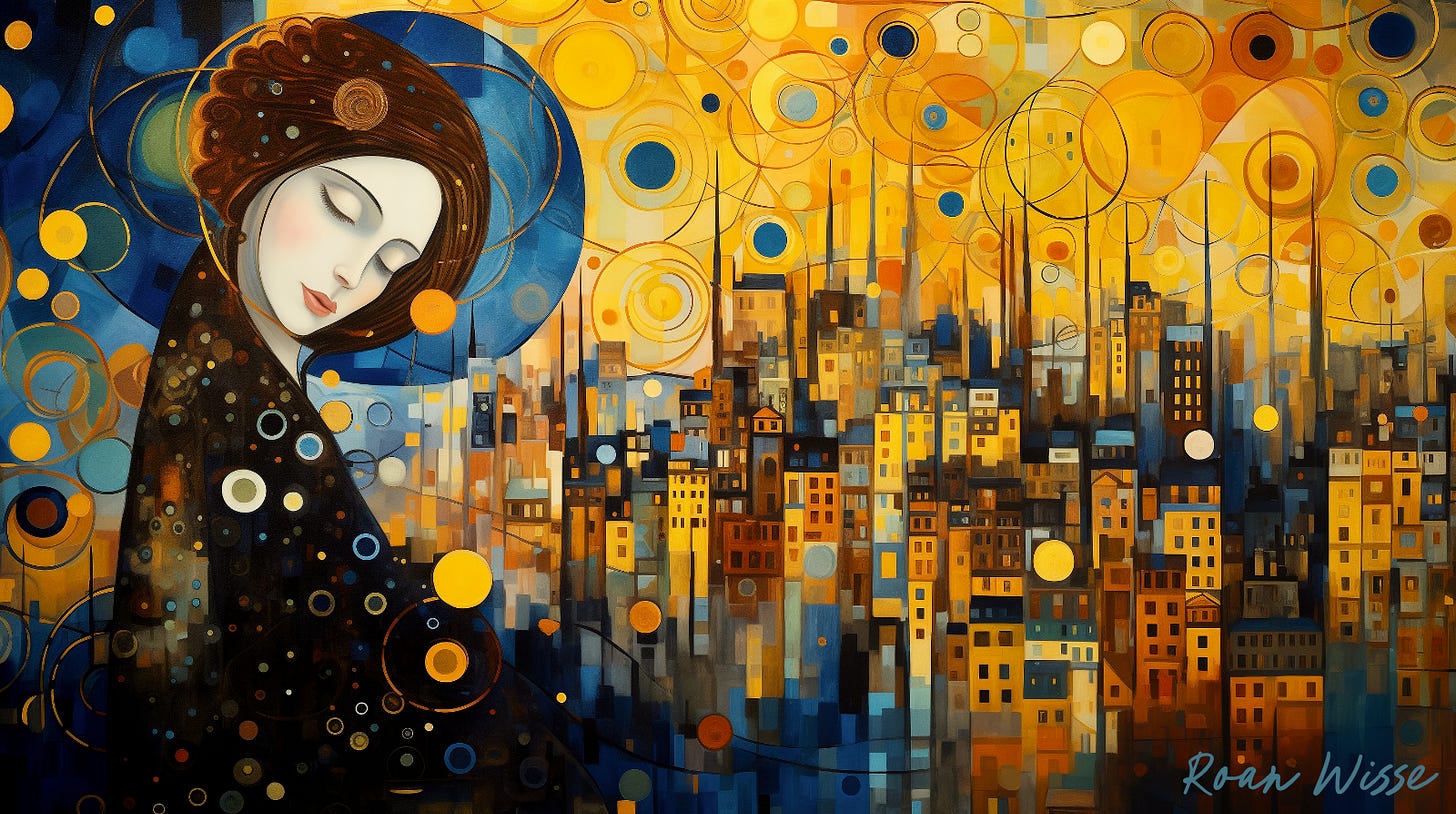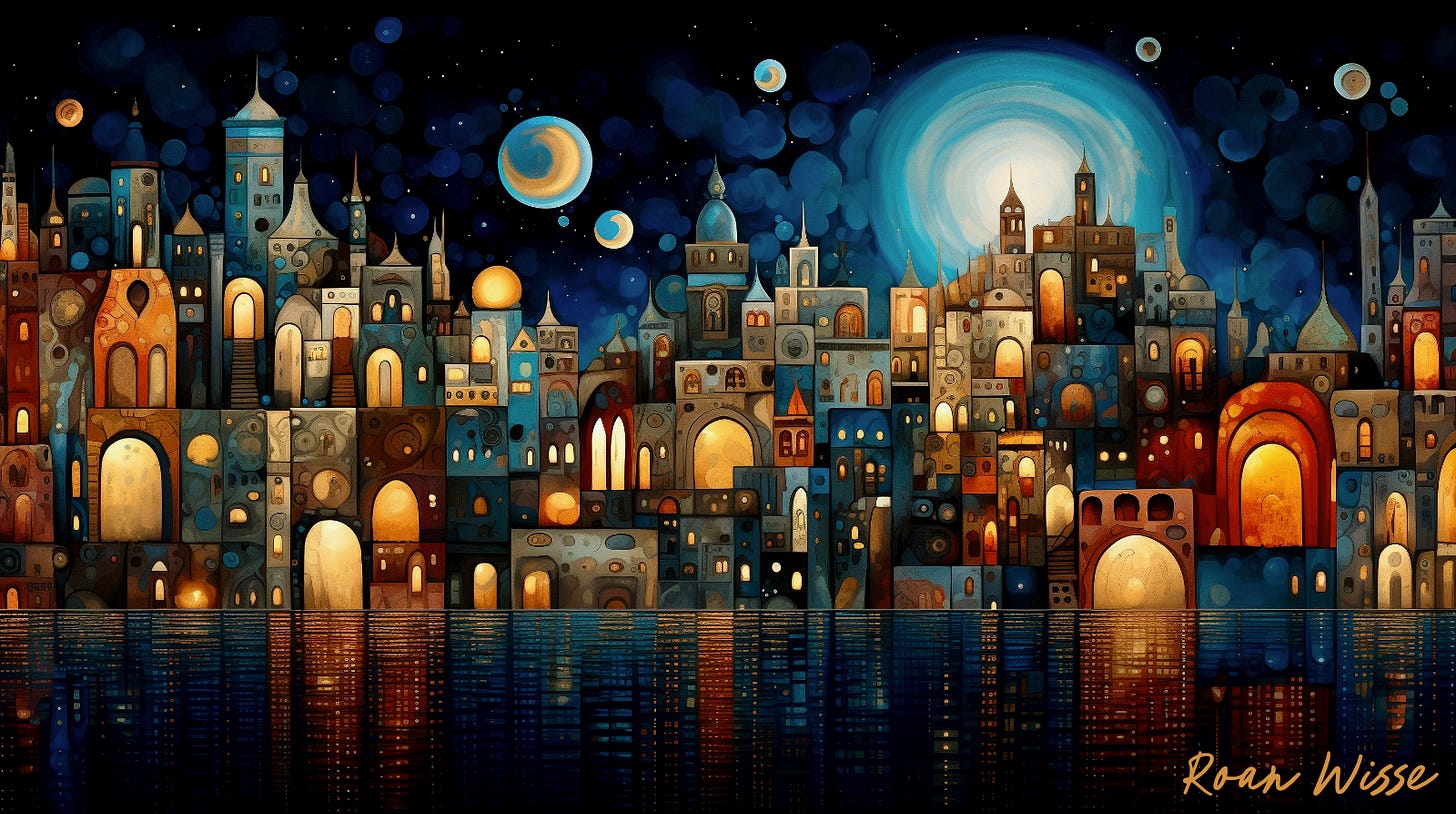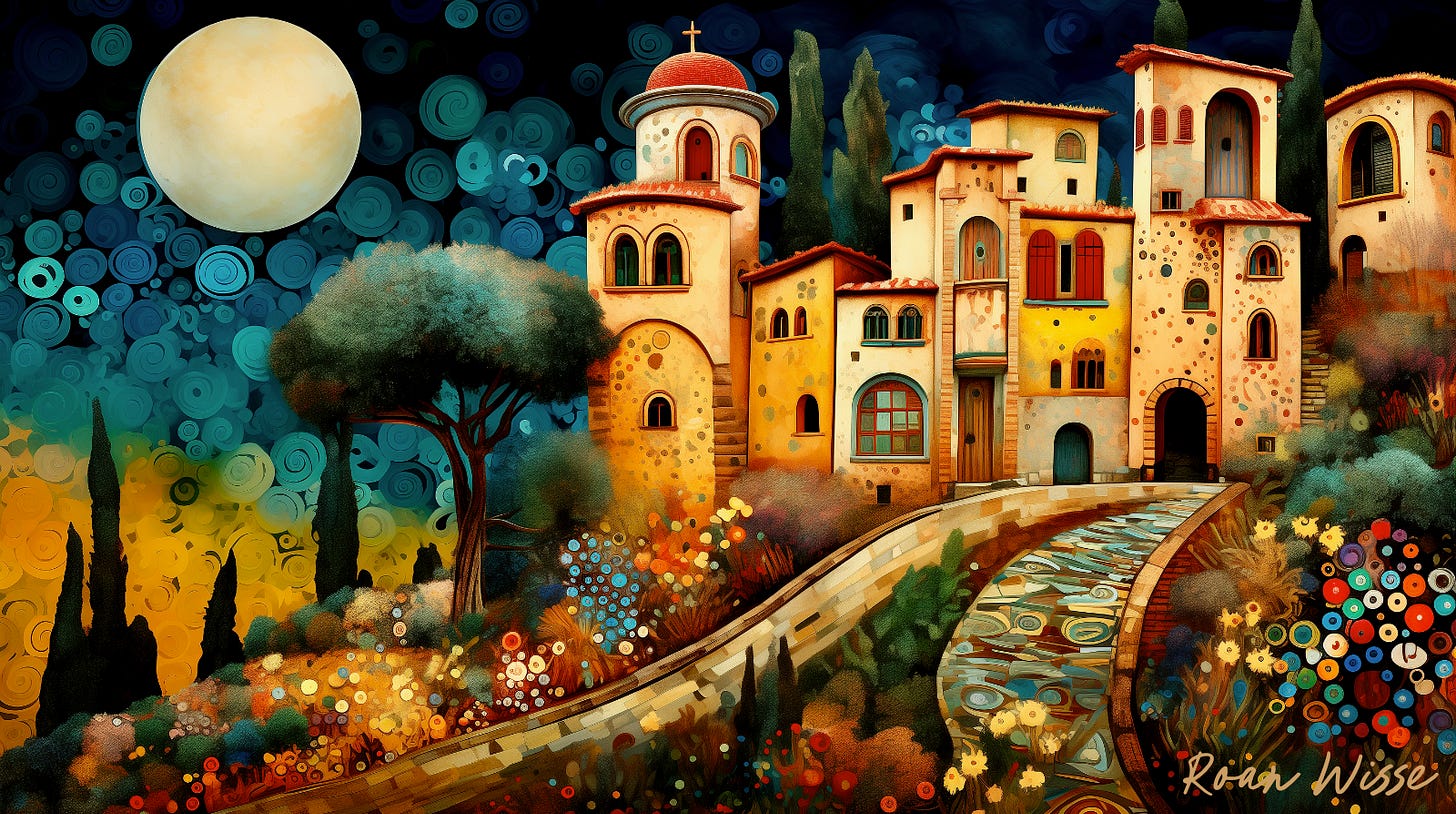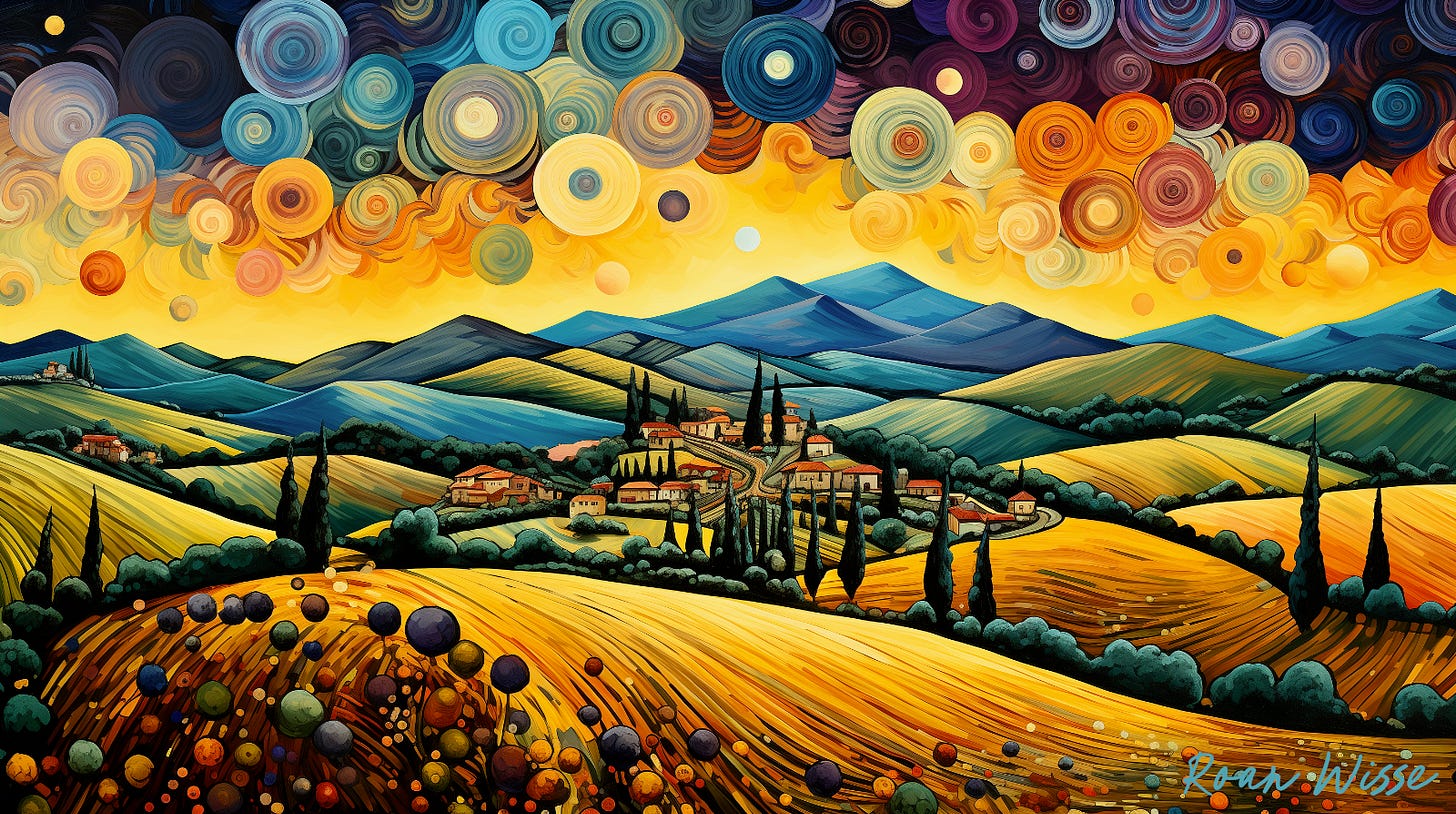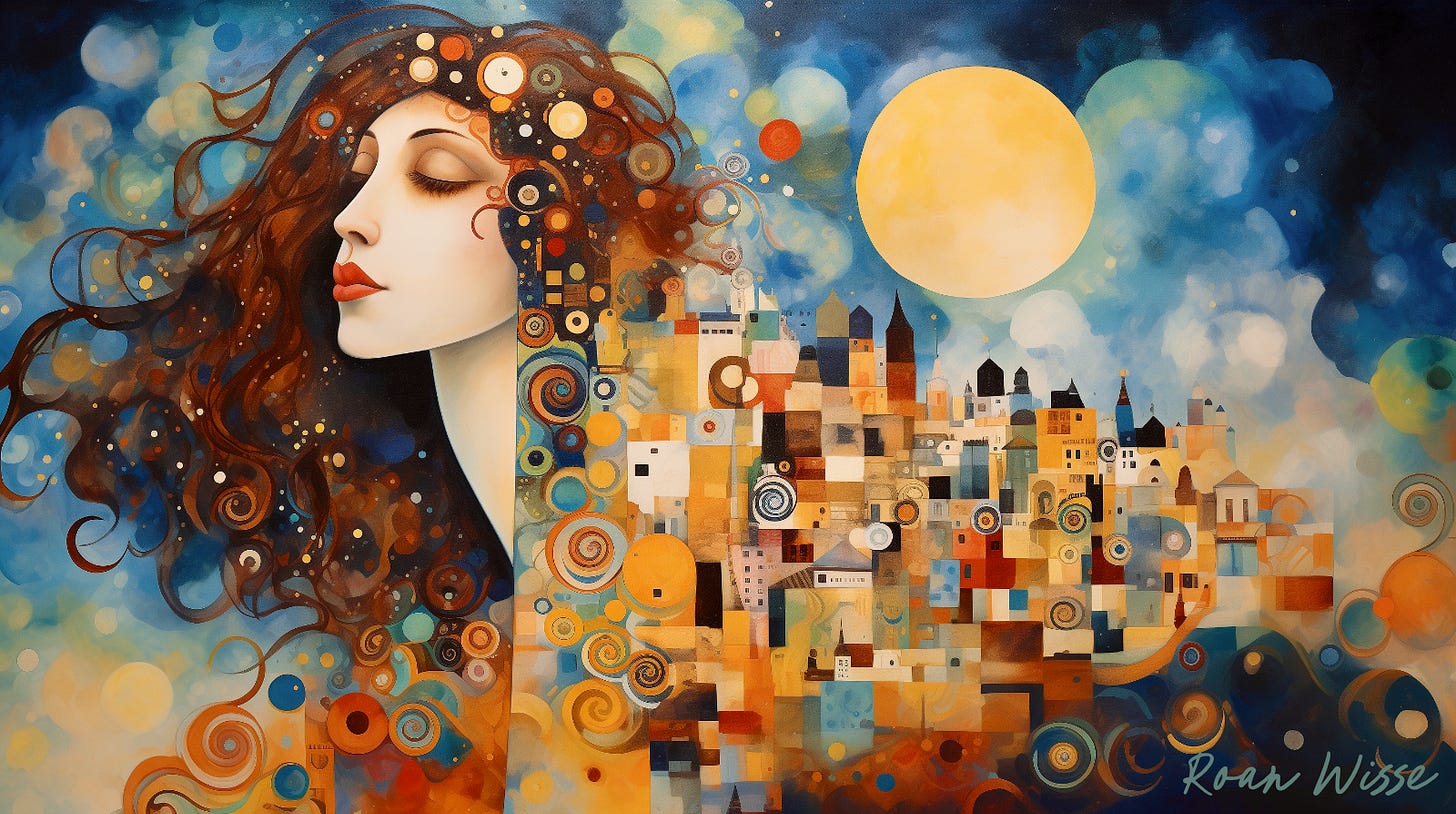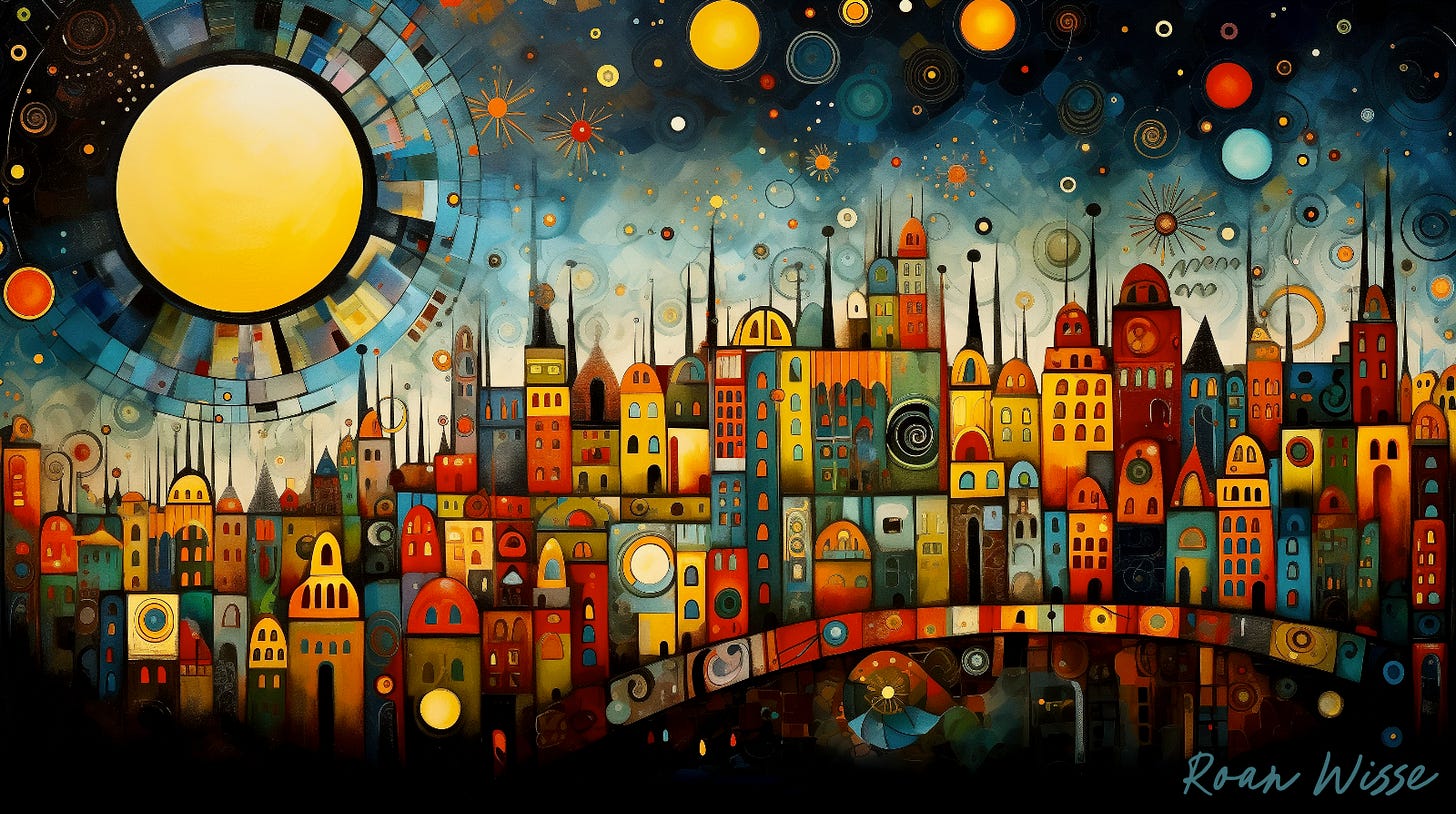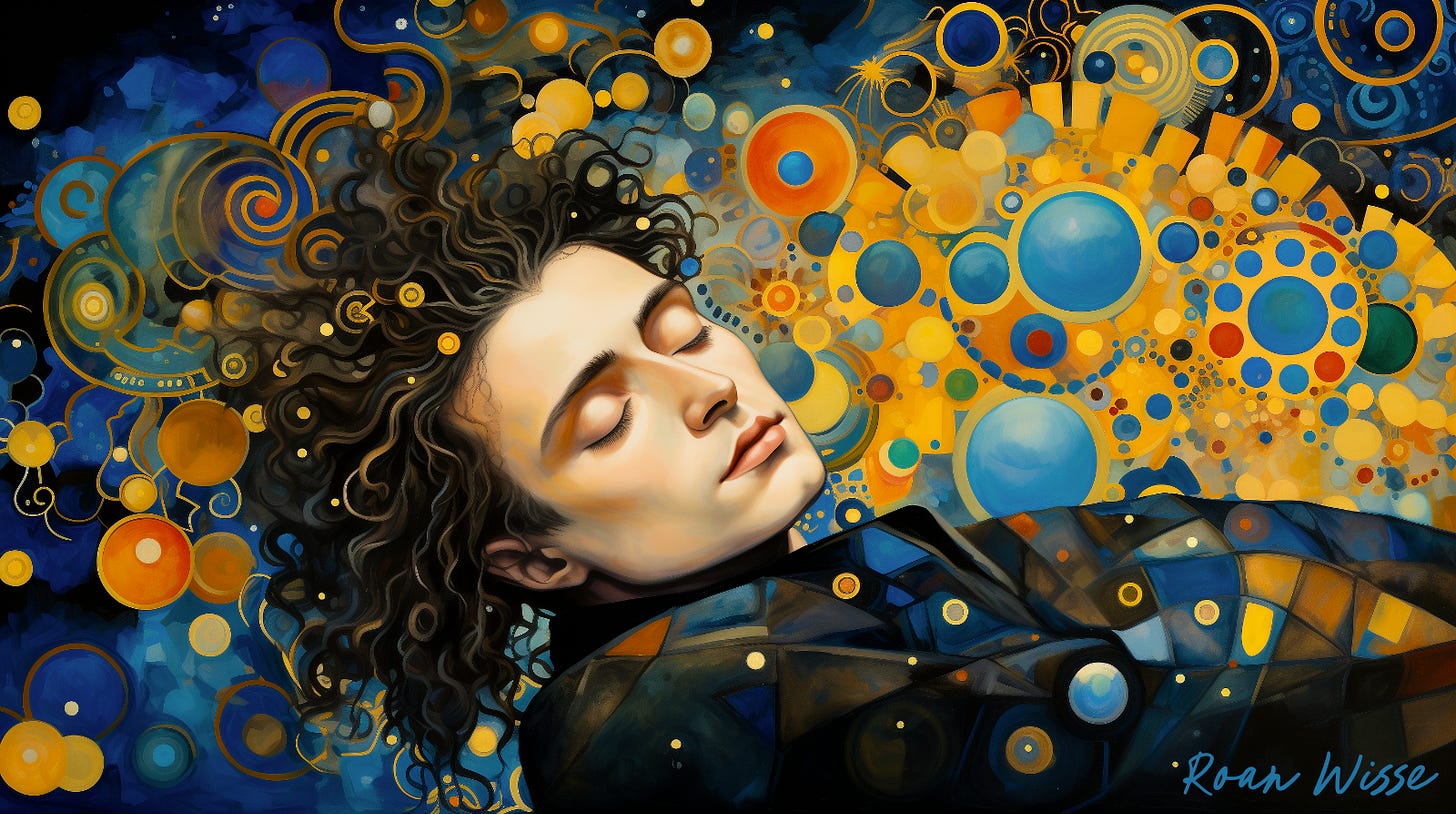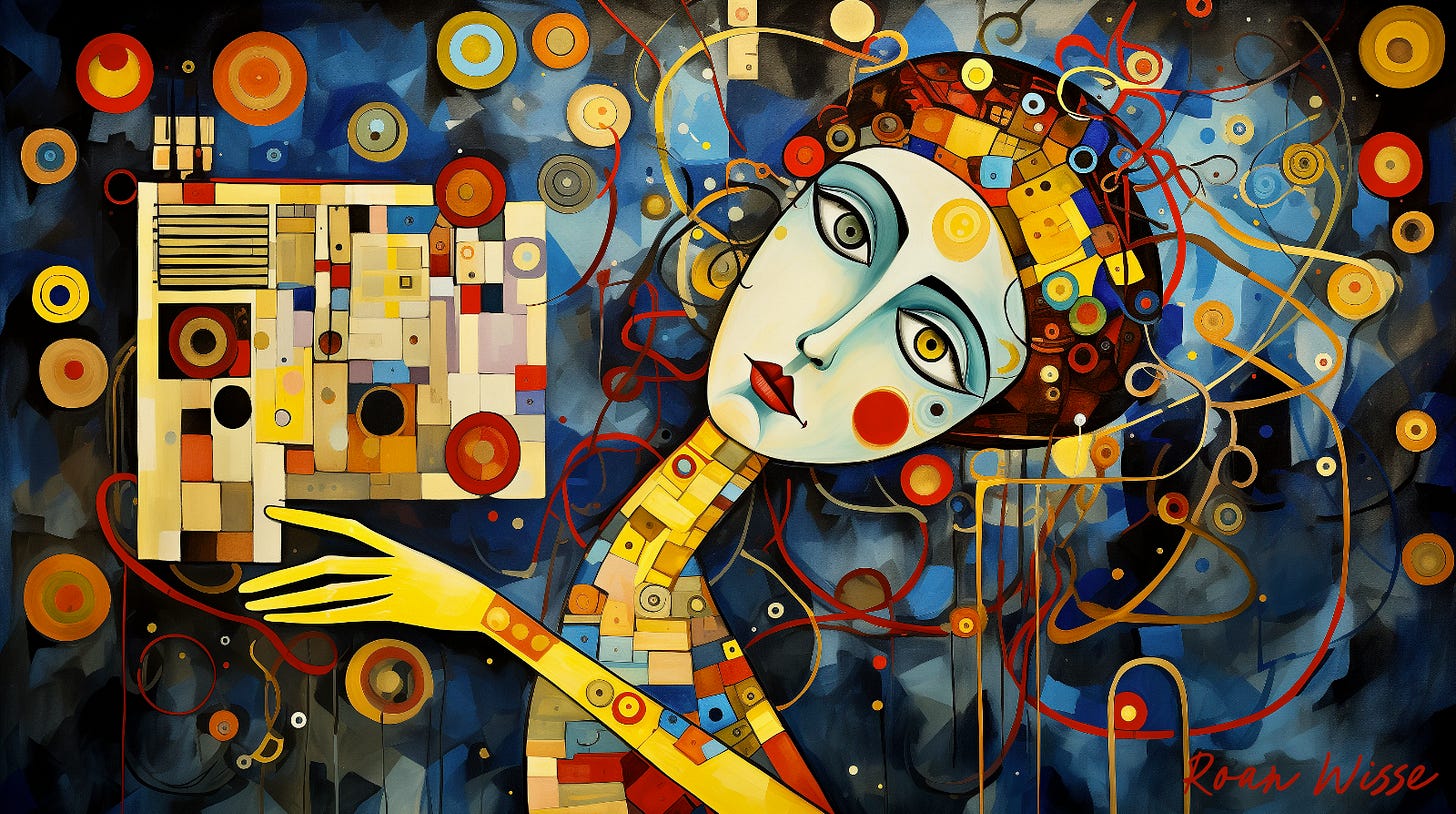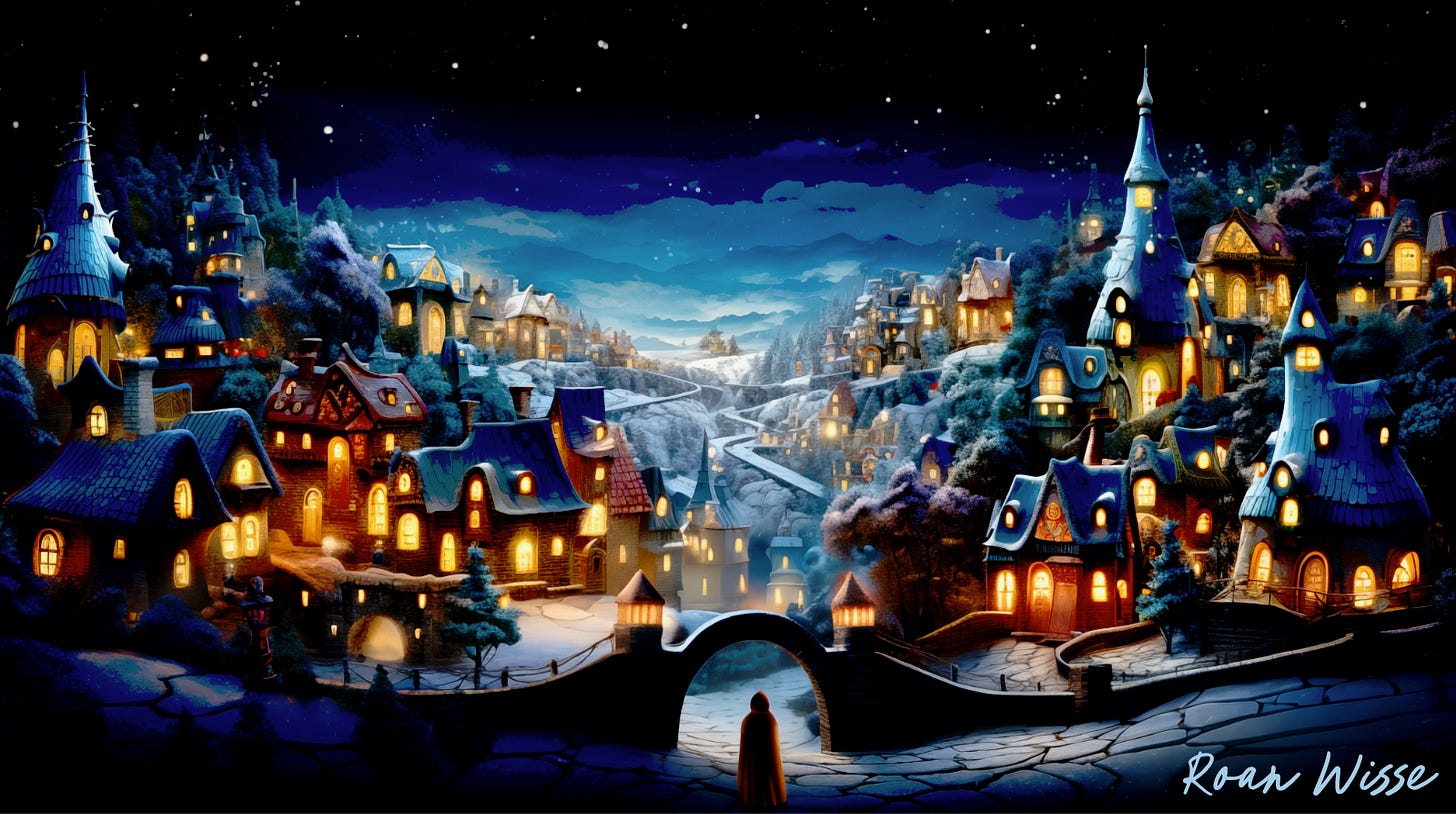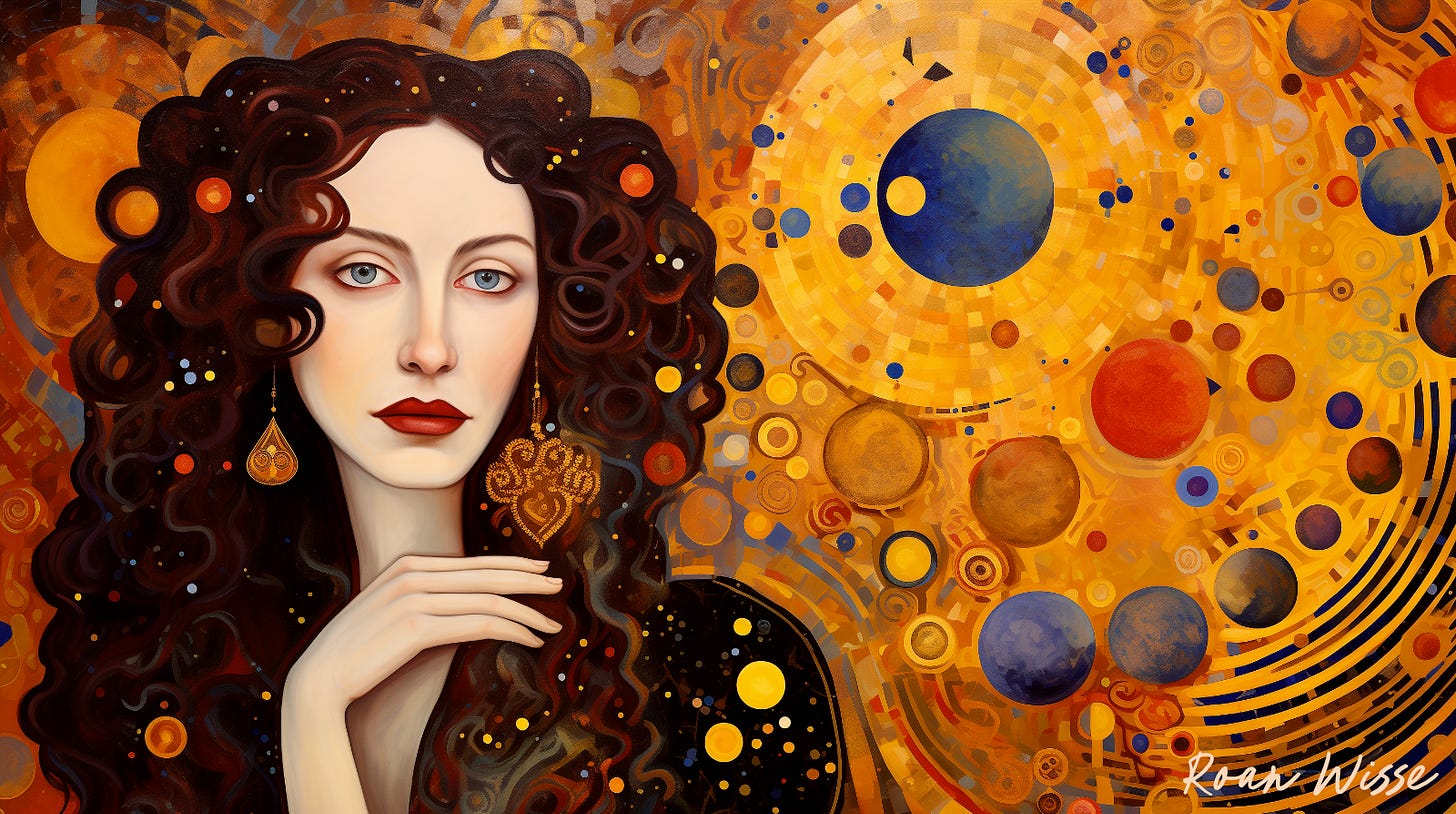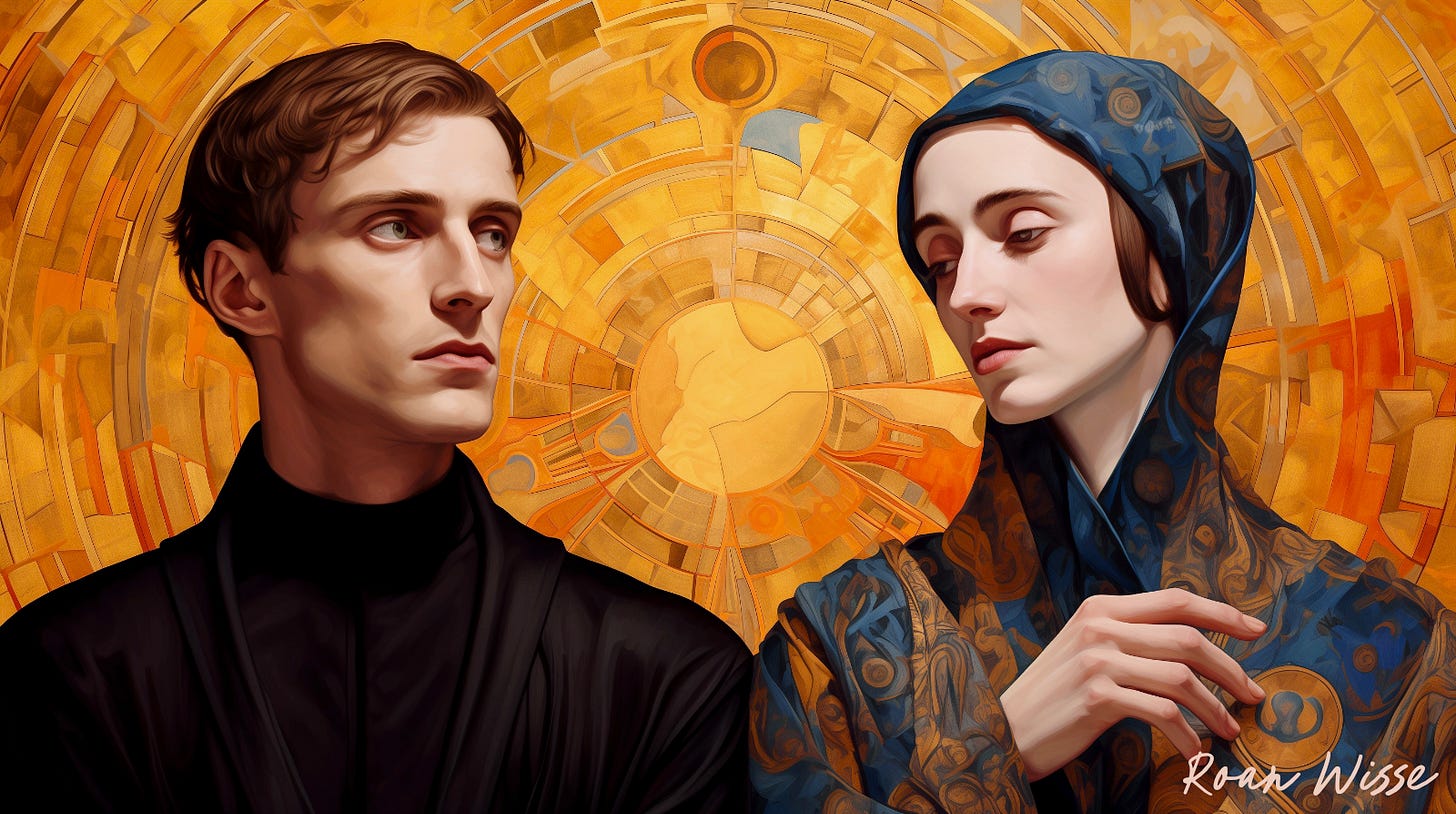Dear Seeker,
The City of Wisdom is a city of echoes, resonating with voices of history and whispers of future possibilities. Its foundations are rooted deep in the chronicles of time, stretching back to pivotal moments like the Sack of Rome in 410 AD. This event wasn‘t a mere historical footnote; it caused a seismic shift in the philosophical and spiritual landscape of Western civilisation.
In breaching Rome‘s walls, the Visigoths did more than topple a city; they shook the core of an empire‘s identity. The fall of Rome, which had been until then a symbol of invincibility, initiated a time of profound introspection and ideological rebirth. It marked the beginning of an era when the old world‘s certainties would crumble, paving the way for new quests for meaning and understanding.
In his epic ‘Decline and Fall of the Roman Empire’, Edward Gibbon traced Rome’s collapse to the erosion of civic virtues and the ascendancy of Christianity, which he believed supplanted Roman martial values with passivity. However, this view simplifies the intricate mosaic of Rome’s decline, which included political corruption, economic instability, and military overextension.
From this historical maelstrom, Augustine of Hippo emerged. His ‘De Civitate Dei’ offered a vision of two metaphysical realms: the City of Man, marked by human flaws, and the City of God, a symbol of divine virtue and peace. Augustine’s dichotomy transcended physical boundaries, presenting a spiritual pathway toward truth and redemption.
This vision echoed through the ages, finding new expression in John Winthrop’s ‘Shining City on a Hill’. Here the American colonies were envisioned as a model of moral virtue and religious freedom under the watchful gaze of the world. In this new context, Augustine’s spiritual journey was reimagined as a communal call to virtue and moral leadership.
Today, you stand in the City of Wisdom, a concept interweaving these historical and theological strands into a contemporary, post-secular narrative. This city brings together kindred ethical frameworks. Here, Christians, Humanists, and even hypothetical sentient AIs converge, contributing to a rich, pluralist society. The City of Wisdom represents a fusion of historical teachings and futuristic visions, a place where past and future coalesce to inform the present.
That memorable line from the film ‘Gladiator’, ‘What we do in life echoes in eternity‘, expresses the timeless truth of the City of Wisdom. Our actions and choices ripple through time, impacting our current reality and shaping the course of history and the destiny of future generations.
The inhabitants of this metaphorical city – the citizens of God, or Cives Dei – are the guardians of a legacy that meshes historical insights with contemporary ethical dilemmas. United not by creed or dogma but by a collective quest for wisdom, ethical living, and understanding, they‘re the descendants of Augustine’s spiritual journey.
As a paradigm, the City of Wisdom is dynamic, evolving, and ever-transcending. It absorbs new ideas, adapts to shifting contexts, and perpetually redefines its essence. In this milieu, AI’s potential role rises above the technological, offering a novel perspective from which to view and interpret our ethical universe.
More than a metaphor, the City of Wisdom is a clarion call to engage, a rallying cry that ripples and reverberates. It beckons us to learn from our past, actively participate in the present, and thoughtfully shape the future. It reminds us that the pursuit of wisdom demands ongoing dialogue, openness, and a commitment to collective well-being.
As we traverse through history’s lessons and tomorrow’s possibilities, the City of Wisdom stands as a symbol of hope, as a testament to our collective capacity to build a more enlightened, compassionate world.
Faithfully yours,
Roan Wisse

